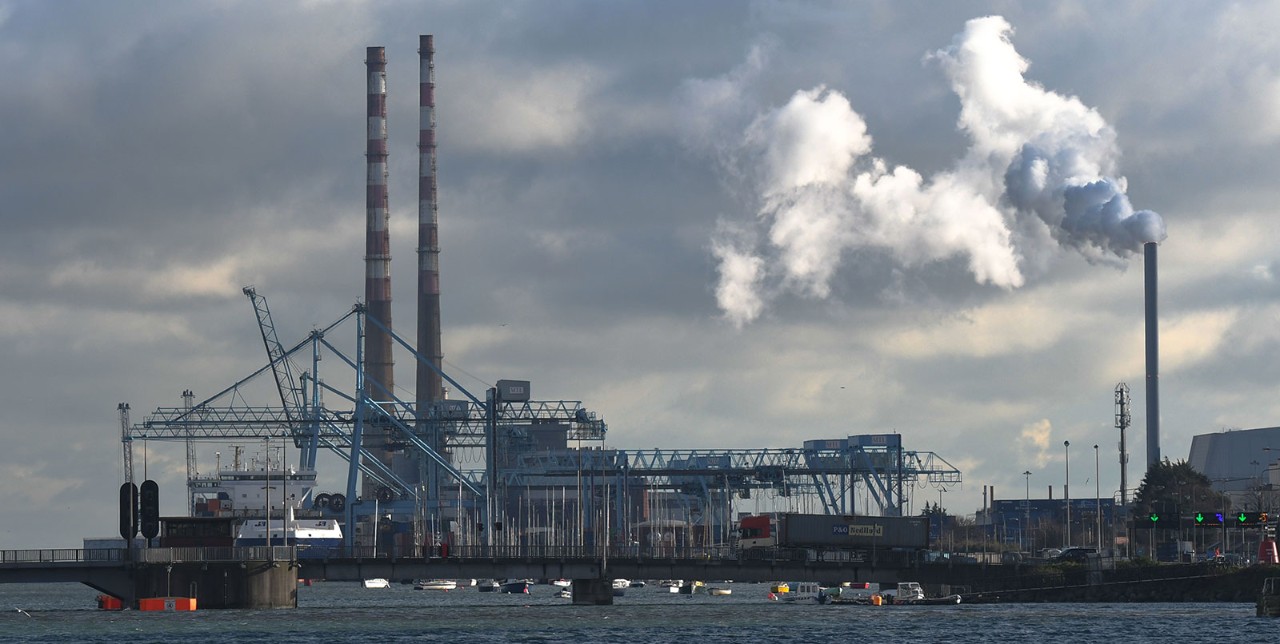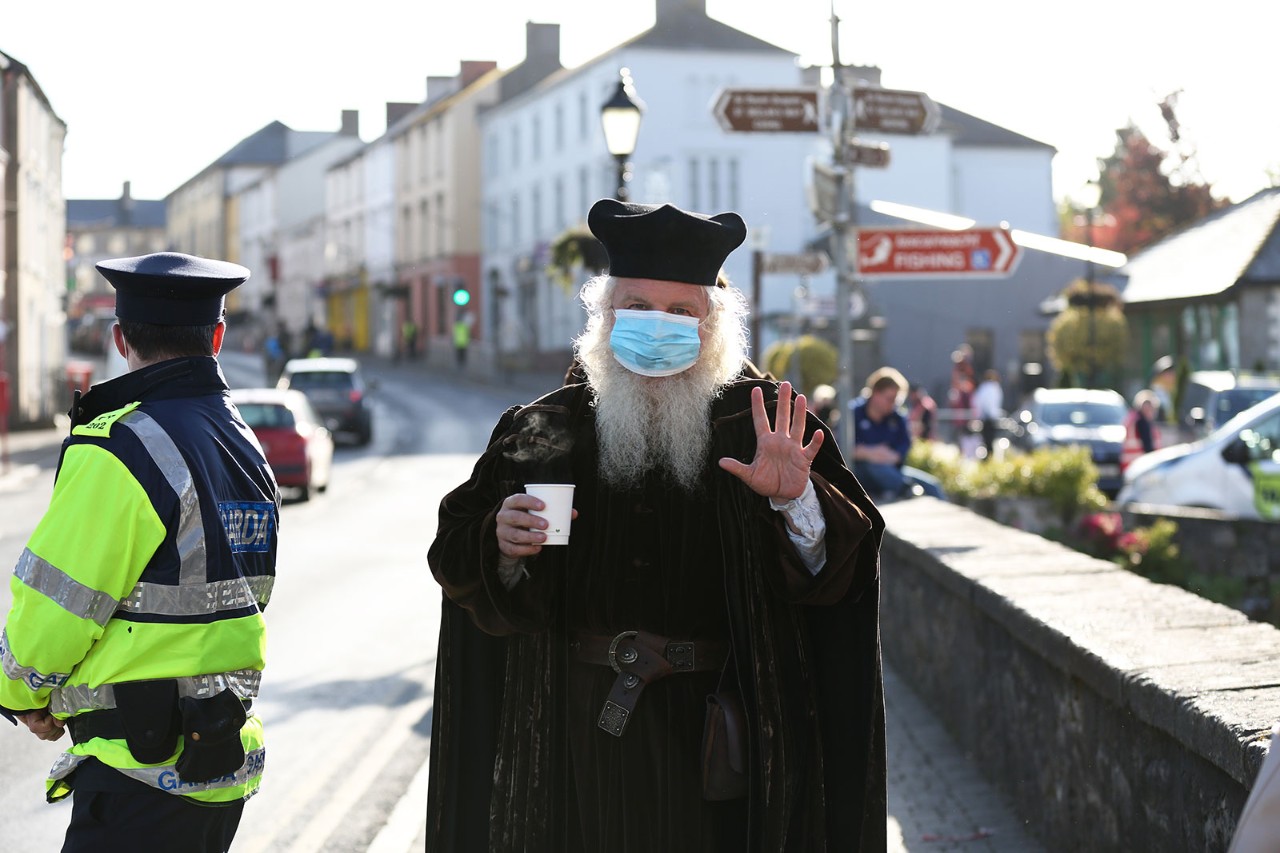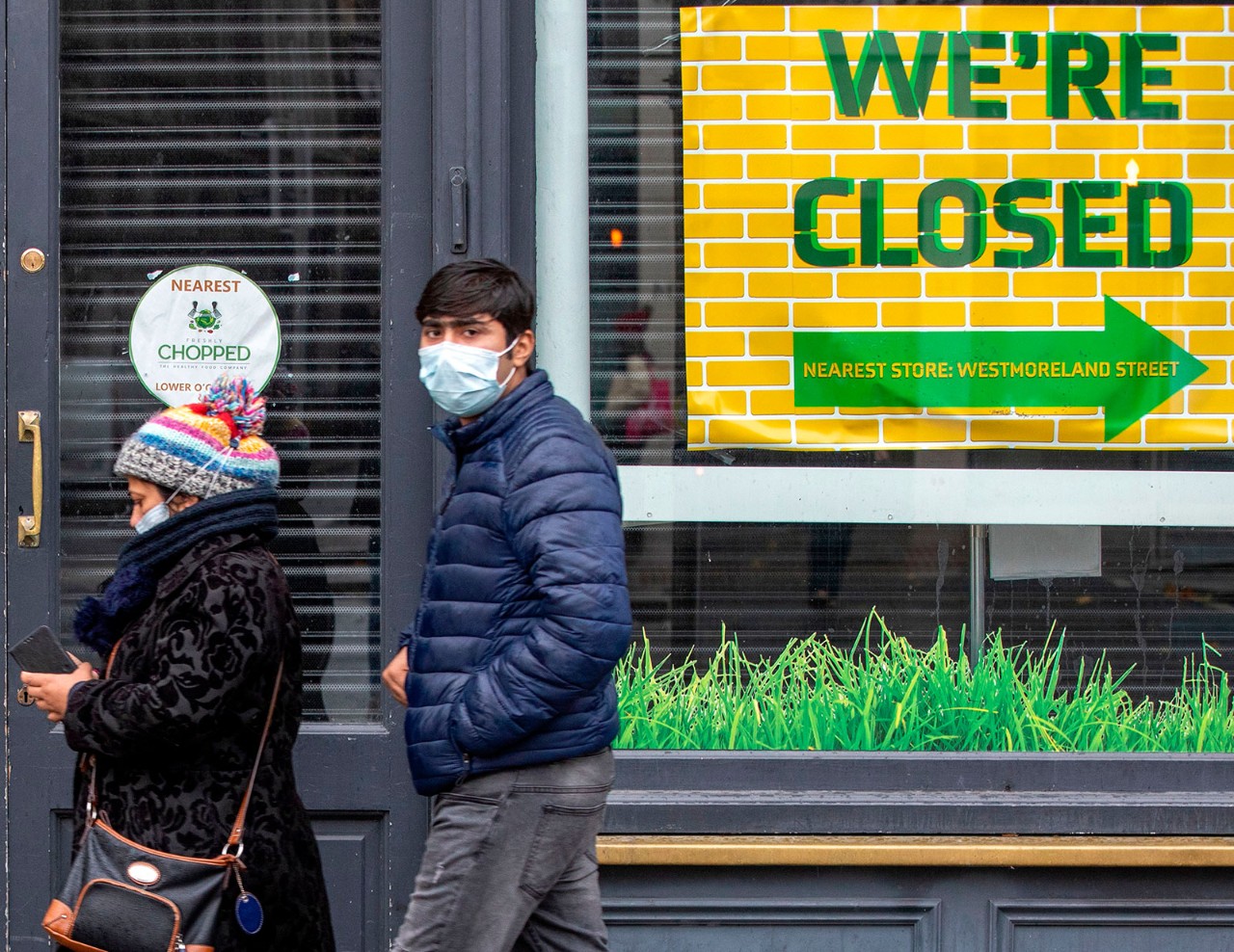
Ambitious and legally binding commitments to reducing emissions were a central demand when the Green Party signed up to coalition government earlier this year. The Climate Action Bill, published in October, gives the first indication of how this core commitment in the programme for government will take shape.
With Ireland ranked second-last in the EU for progress on climate action in a 2018 report, the new bill is timely. But is it the milestone achievement that activists have been waiting for or yet another case of ‘too little, too late’?
Targets
By writing emissions targets into law for the next 30 years and establishing a framework by which greenhouse gas emissions will be reduced by at least 7% annually over the next 10 years, the bill is a significant step forward from previous government commitments.
At its heart is a system of five-year carbon budgets that, from 2021 onwards, will set emissions ceilings known as ‘decarbonisation target ranges’ in different sectors of the economy. This in turn will lead to targeted investment in areas such as retrofitting and renewable energy, green and blue infrastructure, and sustainable agriculture and the bio-economy. All have the potential, the government says, to stimulate significant job creation across the economy.
The bill requires the relevant government ministers to give annual updates on their sector’s performance. Local authorities must also develop individual five-year climate action plans.
This bill ‘sets Ireland on a much more solid pathway than ever before to meet our 2050 net-zero emissions targets’, says Anthony Rourke, EY’s director for government and infrastructure advisory. ‘It is very ambitious, particularly taking into consideration where we are at present.
‘The signal that it sends not just to the country and to every citizen, but internationally as well, is that Ireland is serious about climate action, and willing not only to set out its ambitions, but to put them into legislation.’
‘This bill sets Ireland on a much more solid pathway to meet our 2050 net-zero emissions targets. It is very ambitious’
For many environmental activists, however, the jury remains out. While Stop Climate Chaos, a coalition of some 30 civil society organisations, describes the bill as a ‘starting gun for the race of a lifetime’, Sadhbh O’Neill, the group’s policy coordinator, adds that it has ‘obvious weaknesses’.
She explains: ‘The government only has to pursue the 2050 objective, not achieve it; the five-year targets don’t have to be consistent with the 2050 objective; and ministers aren’t given a clear duty to achieve the five-year targets when drawing up their plans.’
One significant absence from the bill is a ban, as set out in the programme for government, on the registration of new fossil-fuelled cars from 2030. The government says this remains an objective but one that requires EU approval before it can be made law.
Renewable electricity
As the bill makes its way through the Dáil, the government can point to a new pace of progress on green energy infrastructure. In August, 82 renewable energy projects were given the go-ahead, following Ireland’s first renewable electricity support scheme (RESS) auction.
RESS gives a guaranteed price to renewable electricity providers, and the scheme will result in the construction of a further 160 wind turbines as well as 1,750 hectares of solar panels across the country. Meanwhile in early November, German energy giant RWE and Irish company Saorgus announced plans for a major new offshore windfarm in Dublin Bay that could power up to 600,000 Irish homes.
Business backing
The support of business will be key to Ireland’s progress on climate change. Conor Minogue, senior climate policy executive with IBEC, says the business representative body backs the new bill, with the transition from fossil fuels representing ‘a no-regrets opportunity to build a better Ireland. Business is ready to work with government, and all key stakeholders, to ensure the bill is implemented and the new climate targets are ambitious, evidence-based and achievable.’
Yet uncertainty remains about how the response from business will take shape. Last autumn’s Deloitte survey of European CFOs found that while ‘companies feel the pressure to act on climate change… few are taking a strategic approach’, with the focus mainly on ‘increasing energy efficiency and adopting climate-friendly equipment’. Among Irish CFOs, the Deloitte survey found ‘climate action is low on the list of priorities despite the demands from shareholders, clients and consumers, and employees’.
Rourke argues that investor sentiment will play an increasing role is moving climate change further up the agenda of business. ‘Investor capital can move mountains,’ he says. ‘The company finance function, accountant or business adviser must practise listening intently to the sentiment of investor groups.
‘More and more, we are seeing pools of capital coming together to make significant statements of intent associated with green investments, circular economy investments, etc. If you are not listening and reacting appropriately, you can find yourself left behind.’
If being ‘left behind’ is an apt description of Ireland’s position on climate change to date, the Climate Change Bill would seem to offer a fresh opportunity to catch up. The move from ‘laggard’ to ‘leader’ is not guaranteed, but with the possibility of irreversible climate change looming, the bill may be one of the last chances for the country to manage this pivotal 21st-century issue on its own terms.



